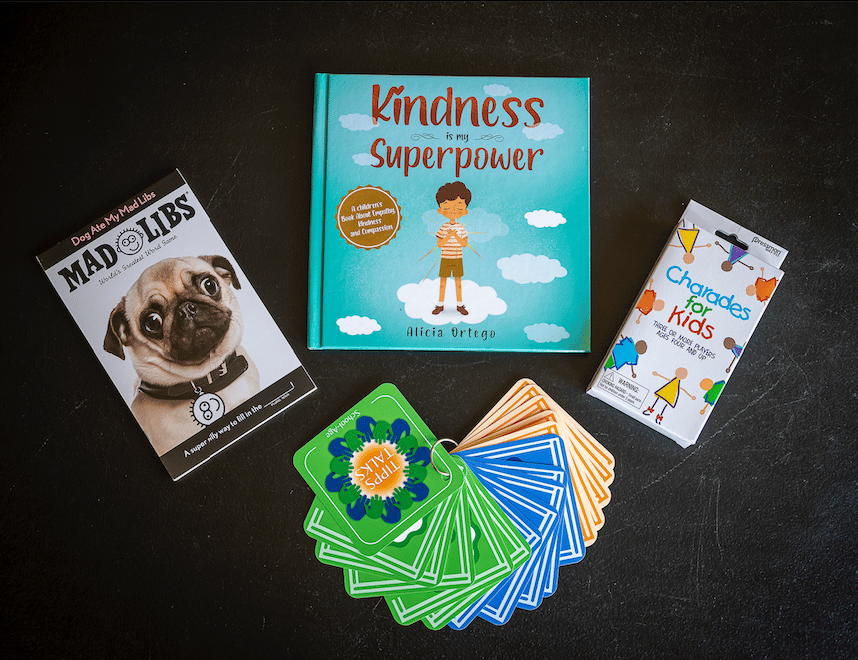Subscription boxes have become a popular business model where you can get everything from fashion, fitness, food, and more mailed straight to your door. Now, you can add parenting tips to the list! Thanks to a faculty duo at Mississippi State University, parents and caregivers can benefit from educational material reviewed and curated by experts through the convenience of postal delivery. The best part is that it is grant-funded, costing Mississippi families nothing but their time to try the hands-on activities and provide feedback via a questionnaire.
Faculty in the School of Human Sciences, Dr. Lori Elmore-Staton, MAFES scientist and associate professor, and Dr. Alisha Hardman, associate professor, and extension specialist, had to pivot how they delivered parenting education programs during the COVID-19 pandemic. The two were awarded Temporary Assistance for Needy Families (TANF) funding from the Mississippi Department of Human Services (MDHS) to deliver parenting education around social and emotional development. Through the MSU School of Human Sciences, the duo partnered with MSU Extension and the Mississippi Department of Human Services to create Protect and Connect, a product of the Trauma-Informed Parenting and Professional Strategies (TIPPS) program. The project aims to train, educate, encourage, and assist caregivers in increasing their knowledge about nurturing children and creating safe and stable environments. TIPPS achieves this through positive discipline strategies, communicating through games and conversations, safety strategies, and creating schedules.
Once COVID-19 restrictions limited families from freely leaving their homes or having childcare, in-person workshops became unrealistic.
“We decided to take this approach because subscription boxes are a hot-ticket item,” Elmore-Staton said. “The families would register for and receive a box tailored to the child’s developmental age that would help families provide more safe, stable, and nurturing environments.”
The tool-kit series developed for infants, toddlers/preschoolers, school-age children, and teens contains information and items to help parents/caregivers and children navigate developmental milestones and make stronger connections through reading and games. Each kit includes publications on safety practices tailored to the child’s age.
In the beginning, Elmore-Staton and her team worked with food pantries to place flyers in bags, partnered with the Discovery Center and the J.L. King Center in Starkville, and recruited families on social media to reach these families. The success of the subscription boxes was overwhelming.
“We’ve reached over 1,000 Mississippi families with subscription boxes,” said Hardmen. “There is no way we could have reached that many with the traditional in-person model.”
Unique to the school-age and teen tool-kits, Elmore-Staton’s favorite item is a deck of age-appropriate conversation cards that the Protect and Connect team developed to enrich parent-youth relationships. The feedback has been overwhelmingly positive.
“The cards have been one of the most favorite items in the toolkits. They can spark discussions at the dinner table or in the car and cover topics parents might not normally discuss with their child,” Elmore-Staton said.
A parent of a school-aged child wrote, “I’m thrilled over the conversation cards. My youngest loves the book, and my oldest is excited about the Mad Libs notebook. We did some conversation cards per my oldest child’s request, and we enjoyed it! We can’t wait to receive future kits; we will anxiously await them. Thank you for putting this together. I believe it will be beneficial to us.”
Families are now back in the office and the classroom, but the demand for the TIPPS kits has not declined. With great recorded success, the team secured additional grant funds, expanding their goal to reach 1,200 more Mississippi families and creating two additional boxes to add to the popular subscriptions.
Mississippi families can sign up on the Protect and Connect website (www.tipps.extension.msstate.edu) and select the age-level kit they would like, and a team member will follow up with a phone call to ensure that the kit has arrived and answered questions. The family receives three tool-kits; one is sent every few weeks. There are several surveys used to evaluate the effectiveness of the program.
Elmore-Staton and Hardman developed one of these evaluation tools, the Nurturing, Safe, and Stable Relationships and Environments Inventory (NSSRE), to assess parent education programs and efforts broadly. This survey is given pre- and post-program completion to measure growth in the assessment areas.
Children don’t come with an instruction manual, but these tool-kits may be the next best thing. They meet a fundamental need to promote positive parenting strategies and improve family communication. While the tool-kits began as a socially distant alternative to parenting classes, they have become a promising model for delivering parenting education to families. Other states are taking notice of Mississippi’s innovation! It’s also good to note that Elmore-Staton and Hardman are mindful of how grant funds are spent, utilizing Mississippi small businesses and book stores whenever possible to purchase items for the kits!
*Photos by David Ammon provided by MAFES